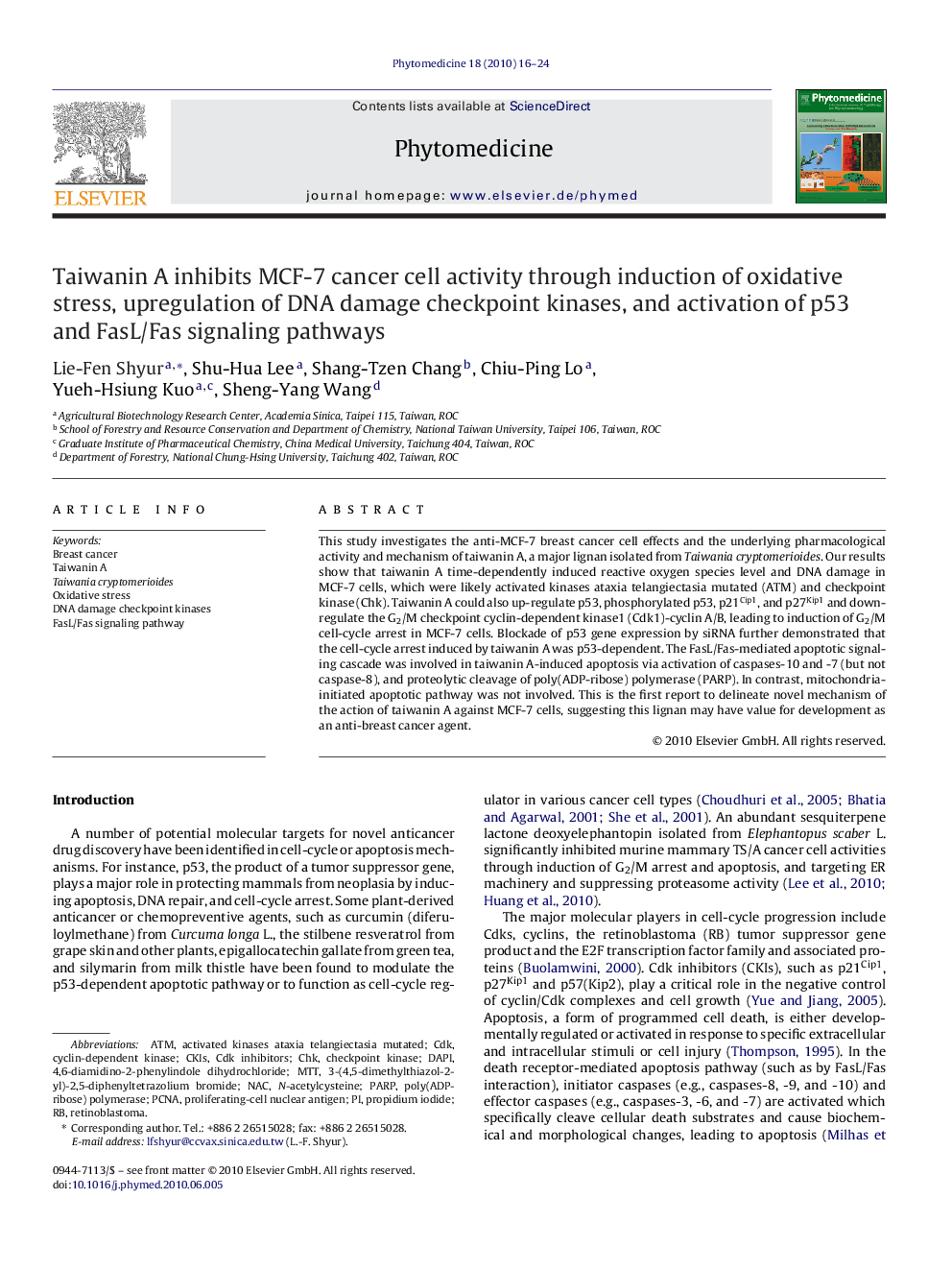| کد مقاله | کد نشریه | سال انتشار | مقاله انگلیسی | نسخه تمام متن |
|---|---|---|---|---|
| 2497352 | 1116198 | 2010 | 9 صفحه PDF | دانلود رایگان |

This study investigates the anti-MCF-7 breast cancer cell effects and the underlying pharmacological activity and mechanism of taiwanin A, a major lignan isolated from Taiwania cryptomerioides. Our results show that taiwanin A time-dependently induced reactive oxygen species level and DNA damage in MCF-7 cells, which were likely activated kinases ataxia telangiectasia mutated (ATM) and checkpoint kinase (Chk). Taiwanin A could also up-regulate p53, phosphorylated p53, p21Cip1, and p27Kip1 and down-regulate the G2/M checkpoint cyclin-dependent kinase1 (Cdk1)-cyclin A/B, leading to induction of G2/M cell-cycle arrest in MCF-7 cells. Blockade of p53 gene expression by siRNA further demonstrated that the cell-cycle arrest induced by taiwanin A was p53-dependent. The FasL/Fas-mediated apoptotic signaling cascade was involved in taiwanin A-induced apoptosis via activation of caspases-10 and -7 (but not caspase-8), and proteolytic cleavage of poly(ADP-ribose) polymerase (PARP). In contrast, mitochondria-initiated apoptotic pathway was not involved. This is the first report to delineate novel mechanism of the action of taiwanin A against MCF-7 cells, suggesting this lignan may have value for development as an anti-breast cancer agent.
Journal: Phytomedicine - Volume 18, Issue 1, 15 December 2010, Pages 16–24